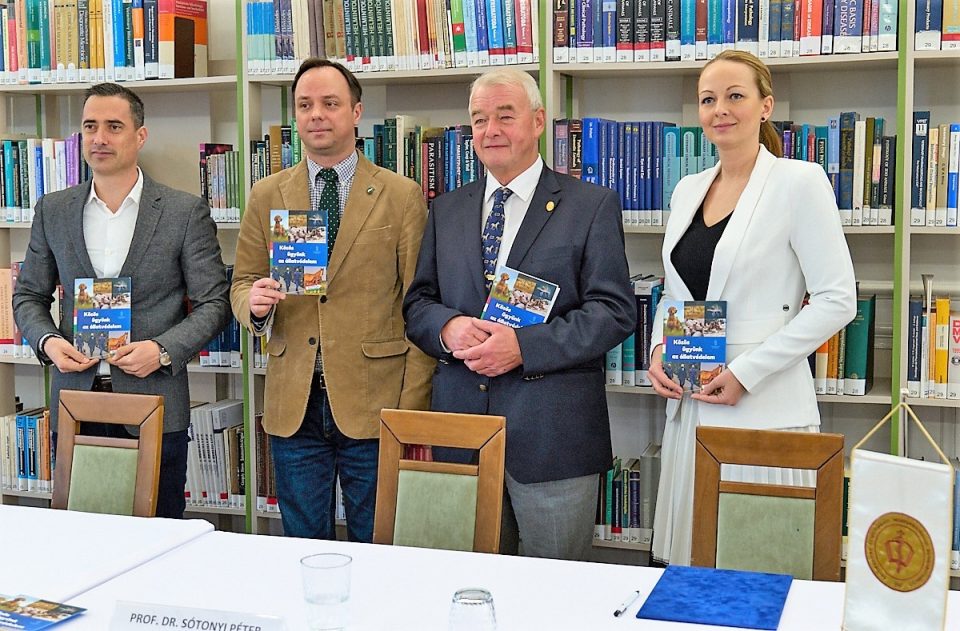Animal protection is considered an important cause by the government, so animal welfare advocates and animal lovers can count on cooperation and support – said Zsolt Nyitrai, Ministerial Commissioner for Priority Social Issues, at a press conference titled “Our Common Cause: Animal Protection” in Budapest on Tuesday.
He announced that the government bases its public work on dialogue because, in matters of priority social issues, it is necessary to find points of agreement by consulting the people and, if possible, incorporate them into the decisions. Zsolt Nyitrai recalled that the opinion of Hungarian citizens has been sought 14 times so far in various consultations and online social dialogues.
In February 2021, an online dialogue and survey were launched under the title “Our Common Cause: Animal Protection” seeking people’s opinions on 13 important issues related to animal welfare. The consultation generated tremendous interest, with approximately 300,000 people expressing their opinions within a month on topics such as supporting civil organizations, education on animal keeping and welfare, neutering programs, tightening penalties in the penal code, establishing new shelters for livestock, the use of pyrotechnic devices, and the inclusion of wild animals in circuses – Nyitrai Zsolt explained, noting that Hungary is home to over 3.5 million dogs, approximately 4 million cats, and more than 35 million livestock animals.
The Ministerial Commissioner stated that the informative publication “Our Common Cause: Animal Protection” has been completed, summarizing the most important common achievements in this topic. The publication will be distributed to interested parties in the coming weeks at county offices.
Ovádi Péter, Ministerial Commissioner for the Renewal and Implementation of the National Animal Welfare Program, highlighted the results, emphasizing that the past year and a half has been a dynamic period for animal protection, and the consultation provided an authorization that helped animal welfare. Among the achievements, he highlighted the establishment of the Center of Animal Welfare at the University of Veterinary Medicine Budapest, support for animal welfare civil organizations, raising awareness of responsible pet ownership, and tightening the assessment of animal cruelty in the penal code. The Ministerial Commissioner mentioned that one of the biggest challenges in Hungary is reducing the number of stray animals, and he stated that the neutering program has been included in the Hungarian Village Program, with local governments receiving over 500 million forints of support for this purpose. The inspection of dog shelters has begun, and there is significant interest in responsible pet ownership, he added. At the end of last year, the government decided to allocate 1.5 billion forints for animal protection, including 500 million forints for supporting civil organizations, 450 million forints for supporting dog shelters, and 250 million forints for public education and food donations in collaboration with the University of Veterinary Medicine Budapest, explained Péter Ovádi.
Péter Sótonyi, the rector of the University of Veterinary Medicine Budapest, emphasized that animal welfare is a matter of the heart for the University, and they have been teaching the subject in multiple languages for years. However, he noted that animal welfare is a profession with scientific routes, and it cannot be solely based on emotions.
Szilvia Vetter, Head of the Center for Animal Welfare at the University of Veterinary Medicine Budapest, presented that the results achieved in animal protection over the past 1.5 years will be presented throughout the country until the end of March. She stated that their experience at the Hungarian-Ukrainian border is tragic due to the events, but it is also uplifting to see the solidarity formed on the Hungarian side to assist refugees and their companion animals fleeing from the war. People arriving with animals smoothly cross the border, and based on their experience so far, an average of 1,000 refugees bring 15-20 animals with them.

